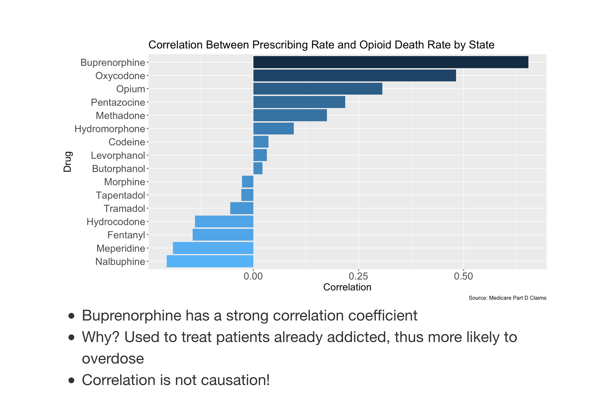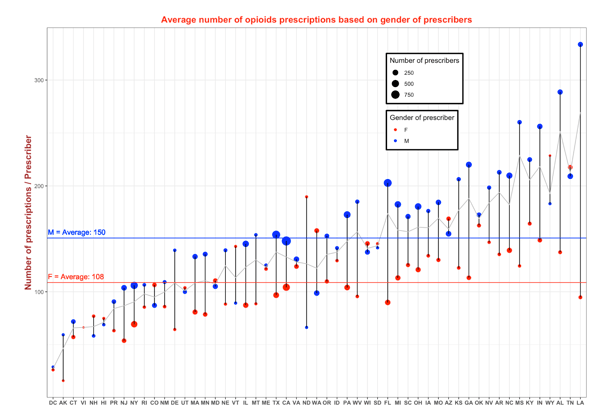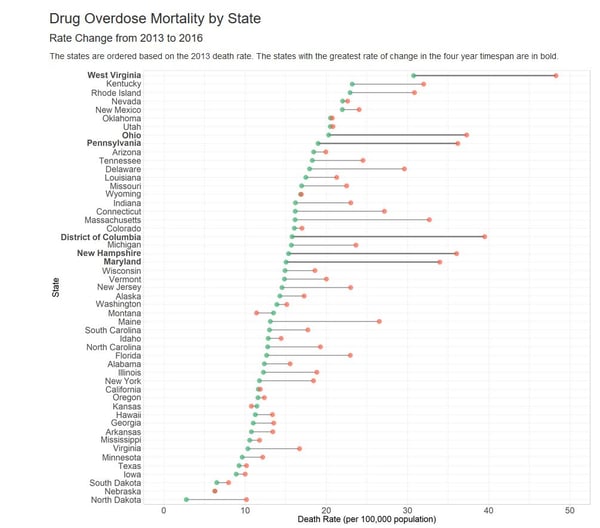Data Science Cohort 2 looked at opioid prescribing behavior in the US and fatal drug overdoses in order to explore – among other things – whether there is a relationship between the types of opioids prescribed and overdose deaths. Lindsey Morris, Director of Data Science and Analytics at axialHealthcare, was our domain expert on the first project students have tackled using the R programming language. She asked students to explore the provided datasets to understand them, test whether the Pareto effect for opioid prescribers held true, and build a model to predict the number of fatal opioid overdoses. Balancing patient pain management against the ever-growing problem of opioid misuse is a core question axialHealthcare tries to answer by examining and analyzing data.


Some of the lessons students took away from their latest project include the importance of interpretation in the story of the data, always questioning whether the data at hand is reliable, and the contribution that social determinants of health data makes when trying to understand health behaviors and outcomes.
Next students will build a dashboard using R’s Shiny library and their work from this project. This provides a warmup to the mid-course project, a Shiny App – using data and a question of each student’s choosing – which will conclude the cohort’s study of R. Mid-course project demos are planned for January 26 at Nashville Software School. Come join us!








